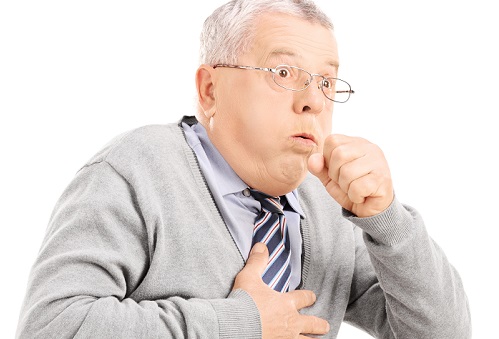The misdirection of gastric content into the lower respiratory tract and larynx is called aspiration. The condition is quite common in elderly people with dysphagia and often leads to complications such as aspiration pneumonia. In fact, there are seven times more chances that you will develop aspiration pneumonia if you already have dysphagia. Early diagnosis of dysphagia plays a big role in limiting the complications. If you have developed aspiration, it is important to understand what to do to prevent choking. Keep reading to learn more.
What're the Aspiration Precautions You Can Take for Dysphagia?
 It is possible to take a number of measures to prevent the aspirating of what you eat and drink or the inhaling of foods into your windpipe or lungs. These precautions even help people with a diminished swallowing reflex. Under normal circumstances, whatever you eat will go into your stomach through the esophagus. People, especially those with dysphagia, tend to put things they eat into the lungs instead of stomach through the esophagus. If you don't take any steps, this will eventually cause serious damage to your lungs and result in complications such as lung abscess or aspiration pneumonia. Here are some aspiration precautions for dysphagia that will help minimize the risk:
It is possible to take a number of measures to prevent the aspirating of what you eat and drink or the inhaling of foods into your windpipe or lungs. These precautions even help people with a diminished swallowing reflex. Under normal circumstances, whatever you eat will go into your stomach through the esophagus. People, especially those with dysphagia, tend to put things they eat into the lungs instead of stomach through the esophagus. If you don't take any steps, this will eventually cause serious damage to your lungs and result in complications such as lung abscess or aspiration pneumonia. Here are some aspiration precautions for dysphagia that will help minimize the risk:
- Your healthcare provider may suggest making a change in liquid/food texture, consistency or temperature.
- It is important to take smaller bites and eat slowly.
- Your caregiver should also follow prompting strategies for increased safety.
- It is important to maintain a proper positioning while eating. The best way is to eat while sitting in an upright position with chink tucked slightly at a 90° angle.
- Stay in an upright position even after you have finished you meal. Don't change your position for at least 45 minutes after your meals.
- Keep the head of the bed at 45° if the patient has been diagnosed with GERD as well.
- Never eat or give a patient of aspiration anything to eat a couple of hours before bedtime.
- Take medications that reduce reflux and promote stomach emptying.
If you have an elderly person at home with dysphagia, you need to take aspiration precautions to avoid inhaling foods into lungs and certain complications. Talk to the doctor and get written instructions about correct positioning for eating, the assistance level needed and recognition of aspiration symptoms.
How Do I Know If I Get Aspirated?
Even when you follow aspiration precautions, you may still end up dealing foods or drinks entering your respiratory system. So it is important to understand what it feels like if foods or drinks get aspirated to make things more manageable. Here are the common symptoms:
- Rapid or very slow breathing
- Difficulty breathing
- Severe coughing after swallowing food
- Coughing up phlegm with pieces of food in it
- Hearing "gurgling" lung sounds when you breathe
- A change in voice
- Green, tan or yellow colored sputum and
- A change in skin color
What Increases Your Risk
Some people are more susceptible to developing this condition. They need to take special care and follow aspiration precautions to prevent choking. Here're the risk factors:
- If you have absent coughing reflexes or have cerebral palsy
- People with poor swallowing and chewing skills
- GERD or gastroesophageal reflux disease
- Inappropriate fluid/food texture, food stuffing and impaired motor skills
- Medications with side effects that cause drowsiness, dry mouth or relax muscles, which make it difficult for a person to swallow properly
- Seizure disorder, especially when the person is not positioned properly after a seizure
- Older adults with increased risk of Alzheimer's syndrome or those with Down's syndrome
Treatments and When to See a Doctor
Once knowing you may inhale some of your meal into your windpipe or lungs, you need to make certain changes to your life style and follow aspiration precautions to prevent choking. Here are some other things to do when foods, drinks and the like get aspirated.
- Call 911 and start CPR if the person stops breathing;
- Stop feed immediately if choking, coughing or gagging occurs;
- Maintain an upright position and encourage coughing.
You should seek immediate medication attention if:
- The person stops breathing or starts to breathe rapidly;
- The person coughs severely after drinking;
- The person has a chronic cough and coughs about thick, tan sputum;
- The person has a fever that doesn't go away after 72 hours.
